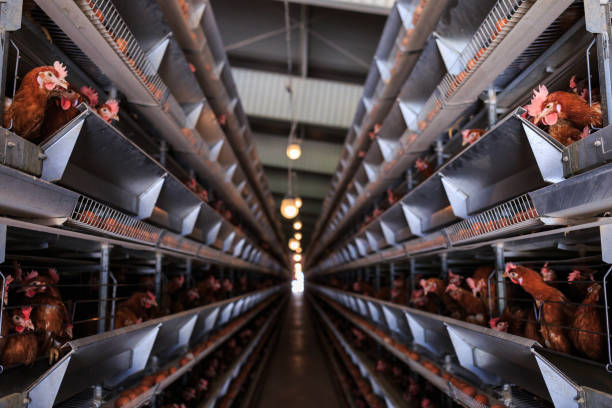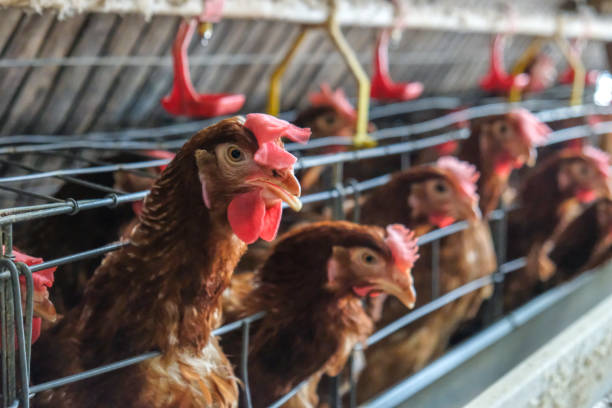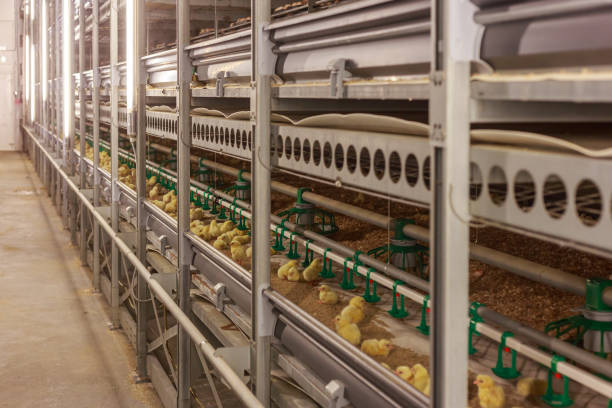
How to Start a Backyard Chicken Farm Easily
How to Start a Backyard Chicken Farm Easily
Raising chickens in your backyard can be one of the most rewarding hobbies—and even a small income source. Whether you’re doing it for fresh eggs, organic meat, or simply to enjoy watching your own flock thrive, starting a backyard chicken farm doesn’t have to be complicated. With the right planning and tools, anyone can set up a productive, low-maintenance system that fits their space and lifestyle. At Zhengzhou Livi Machinery Manufacturing Co., Ltd., we’ve helped thousands of small farmers and hobbyists around the world create efficient poultry setups—even on limited land.
If you’re new to chicken farming, don’t worry. This guide will walk you through everything you need to know—from choosing the right breed to building a safe coop and keeping your birds healthy. The key is starting simple, thinking long-term, and using smart equipment designed for backyard efficiency.
What You Need Before Getting Chickens
Before you bring home your first chick, there are a few essential things to plan out. First, check your local zoning laws and homeowners’ association rules. Some areas limit how many chickens you can keep or ban roosters due to noise concerns. Knowing the rules ahead of time saves headaches later.
Next, decide why you’re raising chickens. Are you after daily fresh eggs? A source of homegrown meat? Or just a fun family activity? Your goal will influence which breeds you choose. For egg production, breeds like Leghorns, Rhode Island Reds, or Sussex are excellent. For dual-purpose (eggs and meat), try Plymouth Rocks or Orpingtons. If you want fast-growing meat birds, consider Cornish Cross—but they need more attention and proper shelter.
Now let’s talk space. You don’t need a huge yard. Even urban backyards can support 3–6 hens comfortably. As a rule, give each chicken at least 2 to 3 square feet of indoor coop space and 8 to 10 square feet in an outdoor run. More space means healthier, happier birds with fewer behavioral issues like pecking.
Don’t forget about feed and water systems. Automatic feeders and nipple drinkers save time, reduce waste, and keep pests away. We recommend investing in durable, weather-resistant equipment—especially if you live in rainy or humid climates. Livi produces compact, rust-proof poultry gear perfect for backyard use, including galvanized metal feeders and gravity-based watering tubes that last for years.
Building a Safe and Functional Chicken Coop
Your coop is your chickens’ home—it should protect them from predators, extreme weather, and disease. But it doesn’t need to be fancy. A well-ventilated, dry, and secure structure is what matters most.
Start by choosing a good location. Place the coop in a spot with partial sun and shade, ideally on slightly elevated ground to avoid flooding. Make sure it’s easy to access for cleaning and collecting eggs. Orient the entrance away from prevailing winds and rain if possible.
The basics of any good coop include nest boxes, roosting bars, ventilation, and predator-proofing. Nest boxes should be dark, quiet, and filled with soft bedding—about one box for every three hens. Roosts should be higher than the nests—chickens like to sleep as high up as they can. Use wooden perches about 2 inches wide; sandpaper wraps help prevent foot injuries.
Ventilation is critical. Fresh air prevents moisture buildup and reduces the risk of respiratory diseases. But avoid drafts—don’t place vents directly over roosting areas. Small upper windows covered with hardware cloth work great.
Predators are a real concern, even in suburban areas. Raccoons, foxes, rats, and neighborhood cats can all threaten your flock. Secure the entire coop with ¼-inch hardware cloth—regular chicken wire isn’t enough. Bury wire at least 12 inches deep around the perimeter to stop diggers. Use lockable latches—even raccoons can open simple hooks.
For small flocks, mobile coops or “chicken tractors” are a fantastic option. These portable pens let you move your birds around the yard daily, giving them fresh grass and insects while naturally fertilizing your lawn. Livi offers lightweight yet sturdy modular chicken cages that can be easily relocated and expanded as needed.
Feeding, Health Care, and Daily Management Tips
Once your chickens arrive, daily care becomes routine. Feeding is simple: use age-appropriate layer or grower feed, always available in clean feeders. Never feed only table scraps—chickens need balanced nutrition to stay healthy and productive.
Provide fresh water every day. In summer, check twice daily—the water heats up fast. In winter, use heated bases to prevent freezing. Add apple cider vinegar occasionally (1 tablespoon per gallon) to support digestion and immunity.
Scratch grains can be offered in moderation, especially in the evening to encourage roosting. Let your chickens free-range for a few hours if safe, or scatter food in their run to mimic natural foraging—that keeps them active and mentally stimulated.
Watch for signs of illness: dull eyes, ruffled feathers, coughing, diarrhea, or reduced appetite. Quarantine sick birds immediately. Prevent most health issues with clean living conditions, proper spacing, and regular coop cleanouts. Replace bedding weekly and do a full deep clean monthly.
Dust baths are a must. Chickens bathe in dirt to control mites and lice. Provide a shallow container filled with a mix of sand, wood ash, and food-grade diatomaceous earth. They’ll roll around happily and come out parasite-free.
Egg collection should be done at least once daily, preferably twice. Collecting often prevents breakage, eating, or nesting issues. Clean dirty eggs gently with a dry brush—washing removes the protective bloom and increases infection risk.

Finally, keep records. Track egg production, feed usage, vet visits, and mortality. Over time, you’ll see patterns and make smarter decisions.
Ready to Start Your Own Backyard Flock?

You now have everything you need to start a simple, sustainable backyard chicken farm. It’s easier than ever—with the right setup, even beginners can raise healthy chickens and harvest fresh eggs within months. The best part? You’re not just growing food—you’re reconnecting with nature, teaching your kids responsibility, and reducing your grocery bills.
At Livi Mechanical, we believe small-scale farming should be accessible, efficient, and enjoyable. That’s why we design our equipment with both hobbyists and commercial growers in mind. From starter brooder cages to automated laying systems, we’ve got solutions that fit your needs and budget.
Want personalized advice? Wondering which Livi chicken cage model works best for your backyard size and climate? Drop us a message today and get a free consultation. Share your yard dimensions, number of chickens, and goals—we’ll help you build the perfect setup. Join the growing community of backyard farmers who trust Livi for quality, durability, and outstanding service.
Let’s get your dream flock off the ground. Contact us now and take the first step toward fresh eggs, self-reliance, and a backyard full of happy clucks.
Frequently Asked Questions
How many chickens should I start with as a beginner?
Start small—3 to 6 hens are ideal. They keep each other company and usually produce enough eggs for a family. You’ll learn their habits without being overwhelmed.
Do I need a rooster for my hens to lay eggs?
Nope! Hens lay eggs without a rooster. The only difference is that without a rooster, the eggs won’t be fertilized, so they won’t hatch into chicks.
What’s the best time of year to start a backyard flock?
Spring is ideal. Chicks grow well in mild temperatures, and they’ll mature in time to start laying before winter. But with a heated brooder, you can start anytime.
How much does it cost to start a backyard chicken farm?
Initial costs vary. A basic coop and supplies for 4–5 chickens can range from $300 to $800, depending on materials and whether you build or buy. Used equipment can lower the price.
Can I keep chickens in a city or suburban area?
Many cities allow backyard chickens—often without roosters. Check local ordinances. Noise and odor are minimal with proper management.
How long do chickens lay eggs?
Most hens lay consistently for 2–3 years, then gradually slow down. They can live much longer—up to 8–10 years—but become less productive over time.
What do I do with chickens when they stop laying?
Some keep them as pets, others humanely process them for meat. It depends on your comfort level and goals.
Do backyard chickens attract rats?

They can—if feed is left out or scraps accumulate. Store feed in sealed metal containers and clean up spilled food daily.
How often should I clean the coop?
Spot clean every few days, change bedding weekly, and do a full coop cleanout monthly. Regular maintenance prevents pests and illness.
Can I expand my backyard setup later?
Absolutely. Many start small and add runs, automatic feeders, or extra coops over time. Modular systems like Livi’s make scaling up easy and affordable.
